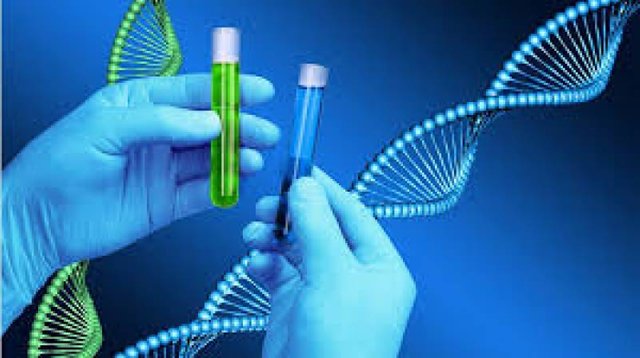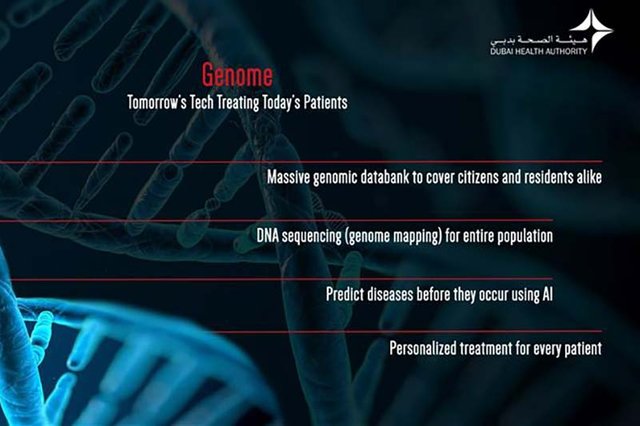The government of Dubai has an ambitious plan to sequence and analyze the DNA of all its inhabitants
Dubai strives to be a model city of the future, either by using hoverbikes to patrol the streets, or building a completely sustainable alternative city. The last idea to go one step ahead is an ambitious and above all expensive plan is to sequence the DNA of all the inhabitants of the city (citizens and non-citizens), a massive study of the genome of about 3 million people. According to the Dubai Health Authority, the study aims to prevent, mitigate and eradicate diseases in the future.
The plan comes from the governmental initiative Dubai 10X, a set of projects that focus on implementing technologies that will be common in the future (or so expected). The project, under the name of Dubai Genomics, was officially published on Saturday and will consist of three phases: create the database, analyze the database and apply pharmacogenomics on the results. A long process that can take years, only the collection of samples has an estimated minimum duration of 24 months.
Study of diseases from thousands of samples
The first step is to build the necessary infrastructure for the sequencing of the entire population. Once the idea of
those responsible for the project is made, it is to start taking samples as soon as possible from the citizens of the United Arab Emirates. They will be the first but not the only ones since over time they seek to sequence the DNA of the rest of the residents as well. The goal is for all residents to have the DNA in the database. This first phase will not be easy or cheap, nor the next two.
In the second stage of the project, they will develop a system based on automatic learning to analyze more easily all the captured data. With what objective? Predict future diseases and risks in order to plan preventive measures. The official website does not say much more about it, but it is more likely that the data will be analyzed en masse to find trends in the medium and long-term. It is not clear, however, what kind of analysis is going to be done, whether of the whole genome or genetic tests.
Finally, in the third phase, pharmacogenomics (not pharmacogenetics) will be applied to develop new ways of treating diseases. This is where pharmaceutical companies will come into play as well. Instead of studying a patient to determine what the problem is and what the solution is, hundreds and thousands of genomes will be analyzed to find common points that have caused the disorder or disease. Through this study, they can create a specific medication for the problem.
The largest DNA bank sequenced but leaving nothing clear
Sequencing the DNA of the entire population of Dubai, some three million people seems an impossible task. The United Kingdom, which has one of the most important programs in this area, hopes to sequence some 500,000 people by 2020. In the UAE, the figure is six times higher, but you can not expect less from a country that seeks to beat all types of records and test flying taxis.
There remain doubts to be solved, especially in the field of privacy. Is it mandatory to sequence DNA if you reside in Dubai? Currently, the Arab Emirates already require, for example, a premarital examination to detect genetic diseases. On the other hand, who can access the sequenced DNA of a citizen? Initially, it is the governmental association Dubai Health Authority that will supervise the project, but in the future, it is expected that external companies will access this database to carry out studies. What is the assurance that an insurance company will not access these data in the future to determine the risks involved in offering life insurance to a specific person?

